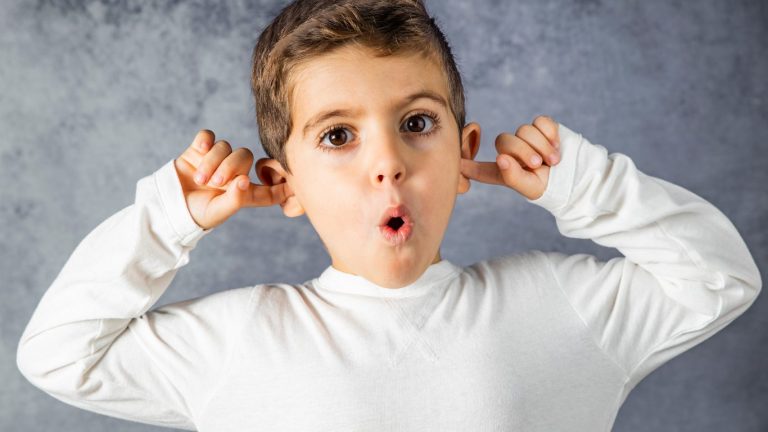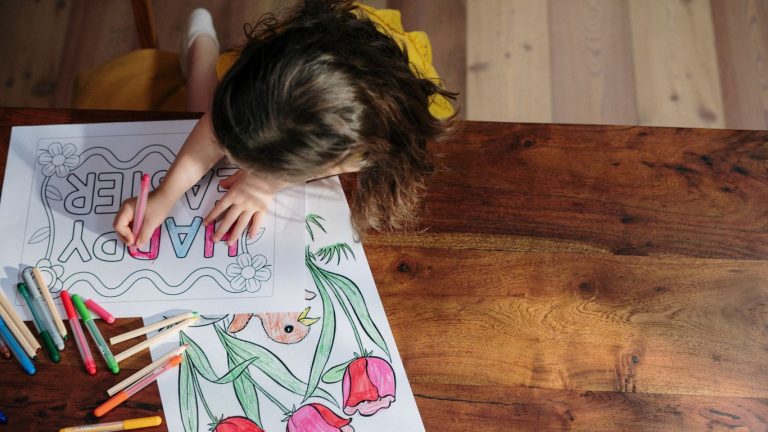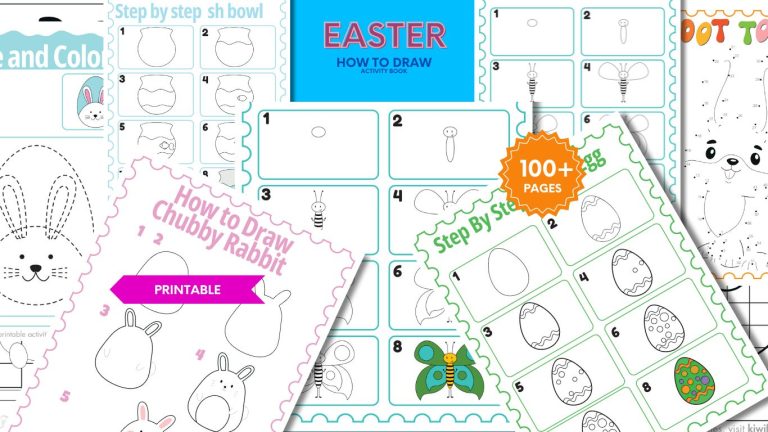All children have moments of aggression. Aggressive behaviour in children is a fairly natural emotional response. But no parent wants that sinking feeling of realising their child has been aggressive to others.
So how can you stop your child from being the one that barges through games pushing, hitting and even biting others?
The first thing to do is observe your child to try to identify the cause of the aggressive behaviour.
Is your child a toddler who is figuring out what her teeth can do and enjoys the sensation of pressure against her teeth as she sinks them into her playmate’s arm? Does he always yell and hit right before dinner? Or is he a teenager who has sworn at you and stormed out because you won’t let him go to a party with his friends?
Causes of aggressive behaviour in children
These are just some of the broad categories that can cause aggression in children, and all are very natural responses
Aggressive behaviour in toddlers
- Experimenting with what their body can do
- Stress – particularly family stress
- Frustration
- Not know how else to communicate
- Feeling overwhelmed
- Protecting themselves from bigger children
- Copying behaviour they have observed
- Enjoyment of the sensation, noise or reaction caused by their action
- Hunger or tiredness
- An aggressive temperament
Aggressive behaviour in teens
- Their own or family stress
- Frustration
- Lack of alternative methods of venting anger
- Diet
- Imitation of others – real life or TV/computer characters
- Attention seeking
- Unsure how to interact with others
- Excess energy
- An aggressive temperament
- Increased aggression is often considered a symptom of certain conditions such as autism, ADHD or depression.
How to deal with aggressive behaviour
Once you’ve identified some possible causes of the aggressive behaviour, you can start to deal with them.
- For a toddler, the most effective strategy is removal and redirection.
Toddlers often don’t understand their actions can hurt others, so when they hit (or bite, or pull hair!), take them away and say ‘we use gentle hands’ or ‘we use our words when we’re upset’ and show them what you mean by this. Apologise to the person who was hurt, then return the child and help them to use their hands gently, or to say what they wanted.
- It’s important to be consistent with this so your toddler learns that it’s not okay to hurt others.
A good strategy for younger children is to have a word you say – like ‘ouch!’ every time they hurt themselves. You can then use it when they hurt others to help them link the hitting or biting with pain.
- If you’ve identified an external cause for your child’s aggression, try and minimise these as much as possible.
Some people find aggressive behaviour reduces when certain foods are taken out of the child’s diet. These might be colourings or other additives, or even gluten and dairy. See your doctor if you think your child’s aggressive behaviour could be linked to food intake or any of the conditions above.
- If you think your child is simply venting their frustration or anger in inappropriate ways, they need to be taught how to do so appropriately. Here are some tips for doing this.
Modelling good behaviour
Model with your own behaviour how you’d like your child to act. If you yell and scream, you can be sure they will try out your techniques as well! If you do resort to yelling, use this as a learning opportunity for your child.
Once you’ve cooled down talk to your child about why your behaviour was unfair, and what you could have done differently. By seeing that it’s OK to make mistakes, and learning how to reflect, you’ll be teaching your child are very valuable lesson in behaviour self-management.
16 alternatives to aggression and yelling
Acknowledge it is okay to feel angry or frustrated, but that it’s not okay to hurt people, whether with their words, their body or their actions. Give them some options for managing their strong feelings. They might like to:
- Go for a run
- Punch their pillow
- Put on loud music
- Paint an angry picture
- Curl up in a corner
- Jump up and down
- Write in a journal
- Cry
- Ring up a friend for a chat
- Learn how to diffuse their anger. Your child might need some time alone, or they might need a hug or some humour to get them through the blip. A calm voice will usually diffuse anger more quickly than yelling.
- Use people in their life, TV programs or stories as examples. When you see people who are angry, discuss with your child what they did and whether it was okay or not. If not, can they think of a better response?
- Encourage your child to use their words constructively.
- Role playing may help your child practice appropriate responses.
- If they have responded inappropriately, once they have calmed down, ask them the following questions: What was the problem? How did you respond? How could you respond differently next time? What do you need to do to make things right?
- Praise them when they have responded well to a difficult decision. When you praise them, say what the difficulty was and how they responded. Eg, I was really proud of you when Emily took the puzzle from you and you said “Please give me the puzzle back, I was playing with it.”
- Encourage them to seek help from an adult if their strategies don’t work.
When to seek help with aggressive behaviour
Aggression in children is a totally natural emotional response mechanism. It’s an emotion that helps us to protect ourselves from others. As we grow we need to develop aggressive behaviour into assertive behaviour, which is a positive form of the emotion.
If you feel that your child’s aggression is getting out of control, or you’re worried they may be hurting others, or even that your child may be getting hurt, seek immediate help. Always trust your gut instincts here, as there a number of people that can help. You may want to seek help if:
- you are feeling like you cannot cope with your child’s aggressive outbursts.
- you are concerned for their safety, your safety or the safety of others.
- an older child has frequent difficulty explaining their aggression after it occurs.
- the aggressive behaviour is getting in the way of your day to day life.
- your child has a sudden unexplained increase in aggression.
- your child seems angry more often than they are not.
- teachers or caregivers have expressed concern about your child’s behaviour.
- may be beneficial for your child to talk to someone about their feelings if there are other stresses going on, eg. divorce, death, moving, sickness.
- you think your child’s language may be delayed.
Where to seek help for aggressive behaviour
Your child’s GP, or physician is often a great place to start. People responsible for your child’s wellbeing, such as your Plunket Nurse, or school teacher can guide you to appropriate agencies too. Just start the conversation with someone in the community you trust.
There are a number of courses available, both online Positive Parenting Solutions and Triple P Parenting and offline such as Parents Centre and The Parenting Place. There are also counselling options available for parents, and children such as the Skylight Trust and Skip.
Now that you know more about dealing with aggressive behaviour in children, you should check out the expert advice in our Behaviour section.






Hi, we have a very aggressive 4 year old, soon to start school. His behavior includes screaming to the point of shaking with anger, hitting and biting me repeatedly (his mum) and this can go on for over an hour. He has started calling everyone (family) names, he repeatedly hits his brother (8) during these times too. This type of behavior happens anywhere. We have put in place a very regular routine, we try to catch the behavior just as it is about to launch but I dont always succeed. I regularly have strangers come up to me and comment… Read more »
Hi Rebecca, I have been having the same problem with our 3year old son for a fair few months now too. He yells and screams, and continually hits me (his mum) or his dad. I feel we’ve tried everything, and wondered if you found anything to help your situation with your son?
Hi Yvette, Right before school started his behaviour started to come right and we have had a really good few months. However this morning I have had the worst morning ever with a meltdown, and getting out of his car seat hitting me around the head while I’m driving. So we started to go down the child psychologist route and we will start that up again. The school have advised that we go to the GP as a starting point which I will organise too. It’s quite distressing and I would like to get to the bottom of it before… Read more »
I have been thinking of going to GP and starting something a little more serious in sorting things out. I hear too often – “oh that’s not normal” which does not help one bit, from what I’ve read its quite normal for kids to react aggressively to things, but trying to calm him has seemed impossible! Wish you all the best – would be great to hear how you get on with GP/ Child psychologist etc. One question – how does he behave at school and with other children? Daycare says our boy is great and no issues and I… Read more »
No it doesn’t help when you get told that it isn’t normal, but sadly in my case I don’t think it is and that is a hard pill for a parent to swallow. He is great socially at school and was at kindy as they also witnessed the drop off drama. Yes the emotions are definitely bottled up just for me, whether that is good or not I am not happy about being the target all the time. So we will see if we can get to the bottom of it. I am heavily pregnant at the moment so that… Read more »
hi there,
I was wondering what are the resources available to get some help with behaviour issues with toddlers ( my daughter is turning 3 in April) and am finding it a a bit challenging.
will appreciate some direction regarding this 🙂
Hi Mina, there is plenty more information in our 1 – 4 year old behaviour section: https://www.kiwifamilies.co.nz/articles/1-4-year-old-child-behaviour/ Aside from this, if you’re looking for courses there’s a few we recommend. A great online course is Positive Parenting Solutions: https://www.positiveparentingsolutions.com/amember/aff/go/jarrod Or, for a direct workshop you should try https://www.theparentingplace.com/events/ Best of luck. — Jarrod
One of my daughter’s friends (age 7) seems to be prone to aggressive tantrums. My daughter doesn’t want play dates with this child any more because it happens every time they get together. So lately, we’ve only had play dates when I can be with them too. Mostly the child’s aggression is targeted at her mother, through shouting, screaming, spitting, biting and hitting. It is really difficult to witness, and I don’t know what to do to help.
Hi Dan, We asked our Facebook friends hat you might be able to do to help, and here are their responses: https://www.facebook.com/kiwifamilies/posts/834606136598016 – sounds like a tough situation for you to witness. Take care.
Hi frustrated parent – thanks for seeking some help with this situation. Frank has responded with some great advice amidst others on our Facebook page: https://www.facebook.com/kiwifamilies.
Thanks kindly, I’ll follow the link :0)
What advice would U give with regards two boys 8 & 7, when one goe’s to hit the other (apparently, with no adult proof to back that up) & the other childs pinches hard or hits the said child? of course a child should be able to defend themselves, but what kind of defense is, in your experienced view, acceptable in children of this age? (bearing in mind that this is a regular thing with these two boys who are not siblings) thanks